By Uran Kalakulla
Part Thirty
Nazism and Communism
Memorie.al / Nazism lasted 12 years, while Stalinism lasted twice as long. In addition to many common characteristics, there are many differences between them. The hypocrisy and demagogy of Stalinism was of a more subtle nature, which was not based on a program that was openly barbaric, like Hitler’s, but on a socialist, progressive, scientific and popular ideology, in the eyes of the workers; an ideology that was like a convenient and comfortable curtain to lie to the working class, to lull the sharpness of intellectuals and rivals in the struggle for power.
One of the consequences of this peculiarity of Stalinism is that the entire Soviet people, its best, capable, hardworking and honest representatives, suffered the most terrible blow. At least 10-15 million Soviets lost their lives in the torture chambers of the KGB, martyred or executed, as well as in the gulag camps and others like them, camps where it was forbidden to correspond (in fact, they were prototypes of the Nazi death camps); in the mines in the ice of Norilsk and Vorkuta, where people died from cold, hunger, from crushing labor in countless construction sites, in the exploitation of forests, in the opening of canals and during transportation in leaded wagons, or in the flooded barns of death ships.
Continued from the previous issue
Although neighboring countries, since prehistoric times, he knew very little, if anything, about our country and, especially, about the history of our nation. And then, for the latter, since he asked me, I began to explain many things to him, being careful not to be drawn into the time and situation in which we lived, because I could also suspect that the poison of espionage could have remained in his blood as a member of the UDB, who had been there for many years. But speaking to him about the past, before our red men came to power, I had my eyes somewhat opened.
And then I vented all my anger against Serbian chauvinism over the centuries, also counting the cases of the merciless shedding of Albanian blood; not only among fighting men, but also among women and children. In fact, to entice him towards my position, I told him that with the Macedonians, during the joint Turkish rule, there had also been cooperation between the Albanian and Macedonian chetas of the beginning of the 20th century. The same goes for the activities of many Albanian clubs in Sofia and Manastir, where (in the latter), the great Congress of the United Albanian Alphabet was also held.
Ljuboja listened to me with great attention and curiosity, and I noticed that my words were not in vain. In fact, on one occasion, when I emphasized in strong colors the Serbian massacres against Albanians over the years, I saw tears in his eyes. Real, sincere tears, of genuine pain. And what else can I remember, more important than that, for Ljubo? The rest seem completely unimportant to me.
The other Macedonian was called Ljubo Panov. He was a young boy, crippled in body, just as he was crippled in spirit. He had been made a spy and, as a reward for his conversion to the religion of the red devil, he had been made a camp garbage collector. It seems that this “post” had pleased this Macedonian bastard so much that it seemed to him that the toilet bowl could not pass without his highly efficient and specialized intervention. Thus, when he released the abundant water into the bowl and the dirt rained down the drain, Ljubo Panovi let out screams of joy, as if he had successfully launched an interplanetary rocket into space: – “Oo, Oo, Oo”!
One of the Serbs was called Jovica Cervenko and the other Boro. The first was tall and thin, with a sharp face, a somewhat protruding forehead and two colorless eyes. He had been a major in the UDB and had become an informer, that is, a pro-Stalinist, and, coming here, had drunk the cup of Albanian Stalinism to the brim.
Jovica was a serious man. His fellow citizens spoke well of him, even with a certain respect. Why? I don’t know! Maybe because he was always gloomy and taciturn, and even as far as I was concerned, I never saw him talk to anyone. Maybe he talked when he was locked in the shed, where all the “foreigners” slept; a special shed for them. But one thing was true: he must have had a strong character and great determination.
And he proved this several times during his hunger strikes, when he would go without food and water for several days in a row, until they would take him in a blanket and take him to the hospital in Rrëshen to give him serum. I have rarely seen such stubbornness as Jovica’s. And since we were separated (when they took me from that camp), I don’t know what happened to that man. Did he live on? Was he able to return to his place? Or did he take an unmarked grave, in some hidden place?
Boroja, the other Serb, was shorter than the first. With a regular face, he was quite sociable with both the Yugoslavs and us Albanians. He even knew how to be humane. He always greeted politely: “Good morning”! or “Good evening”! But, in his smile and especially in his eyes, because it seemed to me that he had an expression of subtle irony and an innate mischief.
I never saw him argue decisively with anyone, even in his native language. Much less fight with anyone. He was especially careful not to mix with any Albanian, even a Kosovar. It seems that he was afraid of solidarity among us Albanians. But, they said that Boroja had staged many of the quarrels that occurred between his fellow citizens. That is why I got the impression that he represented, with that narrowness, quite well Iago from Shakespeare’s “Othello”.
Thus, for me, who generally did not have and do not have a complex of racial contempt, these two Serbs openly showed two of the fundamental traits of the psyche of their nation: stubbornness along with intrigue and cunning. Among the Greeks I recognized a tall man named Taso Sevastidhi. They said he was from the remnants of the Greek army, captured on Albanian soil during the famous Civil War of Gramoz and Vic, between nationalist and communist Greeks, in 1949.
It is strange, then, that Taso was neither a scoundrel, nor a talker, nor a troublemaker and intriguer, as some Chams we had there said about Greeks in general. On the contrary, he was a wise man, with the silent and polite attitude of a babloku. Perhaps he was from some lost mountain village in Greece, forcibly recruited by the Greek army! Taso made no distinction in his association for work of nationalities.
He stayed with his compatriots, as he stayed with Albanians and Yugoslavs. I have the impression that he would stay calm even with the devil himself; as long as he left him alone in the trouble he had gotten himself into. I don’t know why they had put him in prison. Maybe because he might have tried to escape, to return to the bosom of his mountain family. But, one day, even poor Tasso got into trouble with “commander” Bajram.
The guards tied him up and Bamka had him by the throat, just as a wolf holds a ram with his teeth and didn’t let go until Tasso, tall as a bolt, almost out of breath, fell to the ground unconscious. Only the condemned doctor barely brought him to his senses. And, when he finally came out of the dungeon and we asked him how it had happened and how he felt, he, in his broken Albanian, answered us:
– “I don’t know, poor man. He took me by the throat, so many of my balls are sticking out like rabbit balls! And now my blood is black”. We laughed at his speech, but we were sad because we later learned that he had throat cancer and I don’t know how he got on. Did he return to his home, at least to die there?
When I was in the “Koç dungeons”, during the investigation, from the prison opposite us, as the largest and tallest building there was, came from time to time the echo of conversations or commotions that were taking place there, while in us “ground floor” dungeons, not a single sound was heard, except for the creaking of heavy doors, the creaking of thick bolts and the jingling of keys, accompanied only by the shrill cries of the guards, our usual, daily and nightly, inseparable guards.
Thus, the voices that came from the prison seemed much more attractive to me, if not more human. They were our voices. While the guards’ voices seemed to me like the cries of jungle beasts. So, I kept my ear open, to catch something from that world that already belonged to me and to which I had a desire, certainly out of anxiety, to go as soon as possible. Because staying in the dungeon, day by day, was becoming a real torture.
Of course, that echo of voices that came here did not come from the political prison, which was on the ground floor of that huge and gloomy building, but from its upper floor, where the ordinary prisoners had the honor of staying. Because, as I have said somewhere before in the pages of this book, the ordinary prisoners were much more valuable than us politicians, since we were “enemies of the people”! The communist government clearly seemed to value its equals.
But, in that row of rooms on the upper floor, in one of them, surprisingly, there were also some politicians at that time, as an exception to the rule. As I later found out, they were of foreign citizenship and nationality. And, among the others, there was also my Montenegrin friend, Velko. Of course, with the same treatment, even worse than ours. It seems they hadn’t mixed them up with ours.
From the echo of conversations that I could catch, I would hear calls like: “Hey, German!” And then a German response, with the accents of that language that I didn’t know yet. Or a fight in Albanian: “Hey, you, why did you take my soap?” Or: “Why did you empty the water from my gourd, you bastard?” It was clear that Albanian blood on both sides of the border had the same, the same dose of alcohol as cornbread.
Once I also caught a faint Italian voice. And since I knew this language well, I tried not to miss a word, while I wondered what that Italian still wanted in our prisons? Makar, those Germans too? Especially since with the Germans and the Italians, our country had no land border, like with the Yugoslavs and the Greeks! I told all this to Velko one day in the Rubik’s prison camp, in the middle of a conversation. And he began to tell me, among other things, two more episodes, which I am trying to reproduce as faithfully as possible.
Velko told me:
– “In that damned room, there were about 15 of us. Most were Kosovars; I was a Montenegrin, a couple of Greeks and two Serbs, a Macedonian and two Germans (from West Germany), one older and the other younger. They had been officers of Hitler’s Wermacht, but they had already started a tourist trip with a motorized boat along the entire Adriatic coast, from Trieste to the Ionian Sea, and beyond.
But, not having the slightest idea what Albania was, they had entered Albanian territorial waters and the coast guard had arrested them and the court had sentenced them. That’s how they were among us, in that miserable room. But, unlike us, they had plenty of food and even American cigarettes. It’s true that their boat had been confiscated, but not their personal clothes and food.
So, while we were the skinny, hungry people in that room, they were the rich, the aristocrats, who looked at us with contempt and disdain. Very rarely could they give us something small, for example, a cigarette. Who the hell knows why?! Maybe because we were Balkans, an “inferior” race, and they were Germans?
We, necessarily, were bad for bread, as well as cigarettes. For the latter, my friends, because I never smoked. So, when they took us out to the airing yard, after the locals, that is, the Albanians, my friends, whose noses were cut open for smoking, would collect cigarette butts on the ground. Seeing such a thing, the Germans would pucker their lips, openly showing their contempt for us. And, often, they would use that shameful German word “Scheisen”, which means “shit”.
We could have messed with them, but it wasn’t worth it. Then, we were completely exhausted and barely had the strength to drag our feet, while they were still fresh, strong, strong, and well-fed. Moreover, as German soldiers of the special units, as they had told us, one of them was enough to make us all, half one and half the other. But, in our souls, a malaise was gathering that…!
But, – continued Velko, – you know that goodness and happiness in this world are very few, compared to suffering, poverty, misery. Thus, the Germans’ bags were finally emptied, the cigarettes as well, and the proud and capricious Germans, as if they began to lower their noses and sit down at the kettle and the bowl with the command langur, as well as the loaf of bread…! And we noticed, observing them carefully, that their noses had also started to “break” badly for cigarettes. For the latter, what was the truth, they endured a little longer, but finally here too they gave in. And here is how their “unconditional surrender” happened, as on the war fronts: One day, among many, while we were in the ventilation, we noticed that the oldest German, Helmut, said to the youngest, Hans, in his language, which a couple of us knew quite well:
– Hans, I am standing with my legs spread where there are more cigarette butts and you sit down and collect as many as you can, hiding behind me, so that the others do not see! Helmut’s word was like a military order, which had to be followed because it was not done by an inferior, a little more than they already had the same problem in common. But, we too had raised our “revolutionary vigilance” to the highest level and, without being detected by them at all, we had squinted our eyes like a fox when it is on the trail of its prey.
And when Hans sat down at Helmut’s feet and gathered a handful of cigarette butts, we all burst out at once: – Hey, Germans! Are you even worse than us, with cigarette butts?! They were left feeling embarrassed, as if they had done it in their underwear, they lowered their heads and their faces were on fire with shame. While we collectively gassed them. Then the Germans truly surrendered unconditionally and told us manfully:
– Please forgive us! We have judged you badly and have seriously insulted you! This was a good lesson for us. Necessity, my friends, there is no trial and misery has nothing to do with race or nationality! Please forgive us once again, for having burdened you so much. There was no more room for us to continue that conversation. We shook hands and, from that day on, there were no differences of that nature between us, and we even began to become good friends.”
Another day, in the course of those kinds of conversations, Velko told me another episode, equally interesting, with the Italian. A story even more tragicomic than the first. And trying to paraphrase my friend’s story, I continue:
– “One night our room was left without light. I don’t know if the light bulb had burned out or there was some defect in the network. So, we were almost in complete darkness. We could barely distinguish each other only thanks to a distant reflection, which came from the lights of the prison’s perimeter or from those of the street next to it. Hell, we hadn’t shaved for a month, because the barber had suddenly fallen ill and been hospitalized. The barber was a trusted man of the command: a gaunt, evil old man, disgusting in his servility to the captors. I remember he had a strange name, like the name of an insect. Maybe he even had a nickname. We called him “Bizexzek”!
We had “ate dinner” and were impatiently waiting for the signal to go to sleep. At least we could lie down on those grass mattresses, laid out on the cement and cover ourselves with those two miserable blankets, on top of which we threw all the clothes we took off: sweaters, pants, socks and rags, whatever we had. It was winter. It was very cold.
In an instant, we felt the keys of the lock of our door click. It opened with the usual noise and a human shadow stepped inside, on the threshold, while the door closed behind him with a thud. The shadow remained there, motionless, like a ghost. We, yes, had turned into ghosts ourselves and were not frightened by the visitors from the world beyond the grave. When, after a while, we heard something like light groans. That it was some unfortunate young man, we understood, but why he was standing there like a shadow and neither moving nor approaching, did we not understand.
Moreover, why was he cursing?! We looked at each other in surprise and decided to speak to him. One of us spoke first in Serbian: – “Who are you and where are you coming from?” The shadow did not answer at all, but continued to sigh, sometimes cursing again.
– “Who are you, why don’t you speak?” – I answered in German. The shadow returned to his own. – “Hey, why don’t you answer, you dumbass?” – Another asked in Greek. The shadow didn’t say anything. We spoke to him in English, of course, and in Albanian. The shadow did the same. Shaban Basha answered in Italian: – “Speak, blessed one, because we are also people like you and we don’t kill you, nor do we eat human flesh.” Finally, the shadow opened his mouth and spoke in a trembling voice, I don’t know if it was more from the cold or from the terror that seemed to have taken over his entire being:
– “Sono Italianoooo”!
– “Come on, get the deserted ones here and don’t stay there, like a fence”, – Shaban spoke again.
Finally, the shadow moved from the place and came towards us. We noticed that he was completely barefoot, with a pair of summer clothes on his body” /Memorie.al




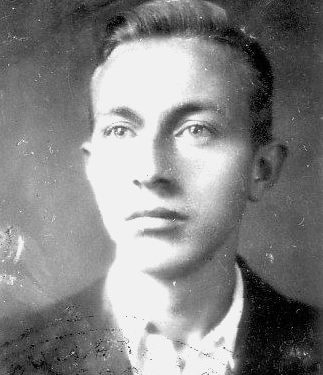
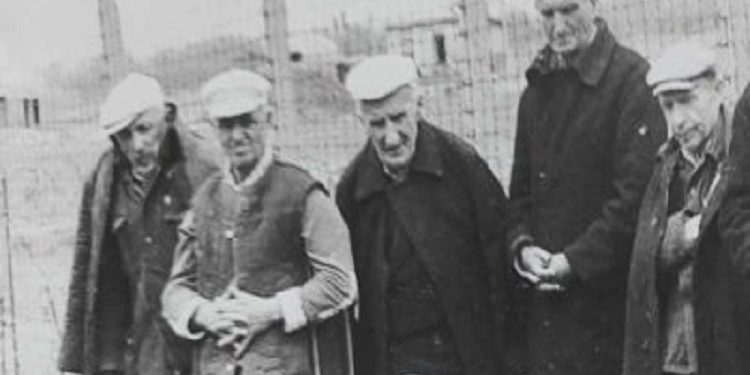
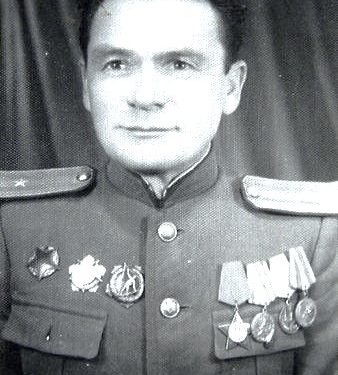
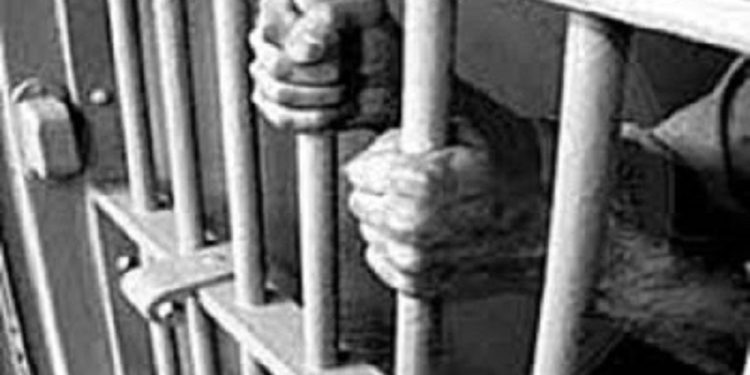
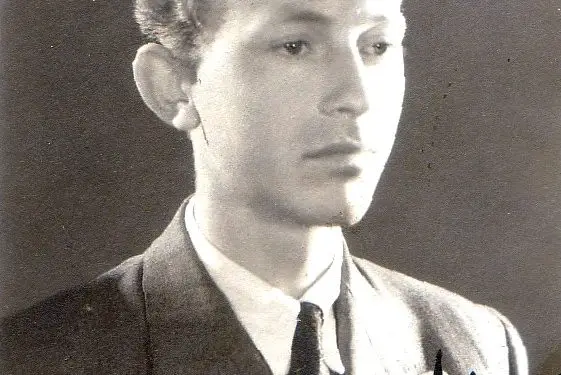
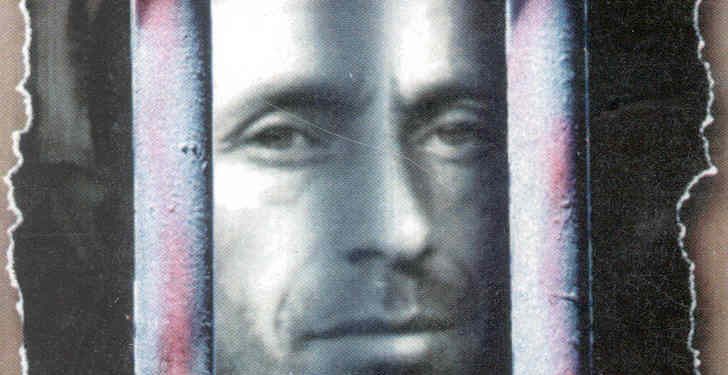
![“The ensemble, led by saxophonist M. Murthi, violinist M. Tare, [with] S. Reka on accordion and piano, [and] saxophonist S. Selmani, were…”/ The unknown history of the “Dajti” orchestra during the communist regime.](https://memorie.al/wp-content/uploads/2026/02/admin-ajax-3-350x250.jpg)
![“In an attempt to rescue one another, 10 workers were poisoned, but besides the brigadier, [another] 6 also died…”/ The secret document of June 11, 1979, is revealed, regarding the deaths of 6 employees at the Metallurgy Plant.](https://memorie.al/wp-content/uploads/2026/02/maxresdefault-350x250.jpg)




